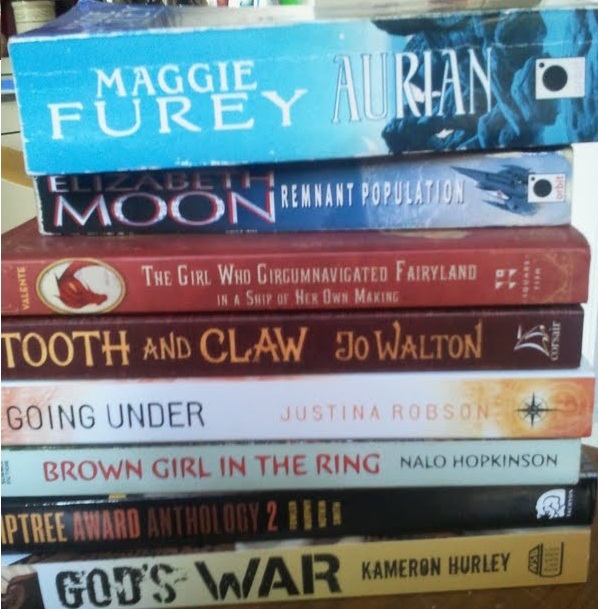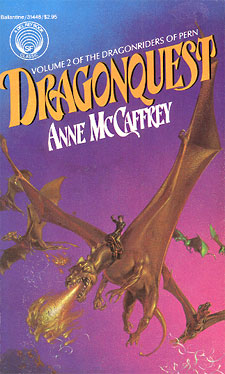Kari Sperring is fed up with the lack of attention to women writers in science fiction and fantasy and is doing something about it:
So, yesterday I decided to indulge in another round of that intermittent habit, poking the internet with a stick, but starting a hashtag — #womentoread — over on Twitter. I asked people to recommend sff by women. The response was astonishing: I’d hoped that some of my friends would pick it up, but… One of the very first to do so was Seanan Mcguire (Thank you, Seanan!) and it just took off.
[…]
But why now, exactly. I’ve done something like this before (last year with the fantasy by women thing). That’s part of it. I am an activist to my bones: it’s coded into me to try and do something when I see an injustice. And I know far too many really great women writers who are underrated, under-reviewed, under-recognised. I see male writers praised for doing things in books which women did before them, which women are doing as well as them — but the women are ignored and sidelined.
You can share the idea. You can write a review of a book by a woman. You can blog about a woman writer you admire. You can post a list of links to the websites of women writers you love. It doesn’t have to be ep;ic fantasy or even sff. It can be any genre. And then, please, go to twitter and tweet that link with the #womentoread hashtag. If you’re not on twitter, post the link here in the comments and I will tweet it for you.
Nina Allen took this idea and prepared a list of 101 women writers to read, which is a good start to look for new writers to try, as is James Nicoll’s list. This is not the first time of course that the lack of visibility of women in sf&f has come up; two years ago Nicola Griffith started the Russ pledge in a similar attempt to get more discussion of women sf&f writers going. Some people, like me, took her up on it but of course such grassroots attemps take time to perculate upwards. A new initiative like #womentoread may help get some more momentum behind the continuing struggle to get more attention to women.
What I want to do with this is not to set up my own list of women writers, but rather do some posts highlighting some of my favourite writers, perhaps on a weekly basis; I’m thinking Women Writers Wednesday. I’ve been trying to read more female writers in the past couple of years, but a bit more systemic attention won’t do any harm.


